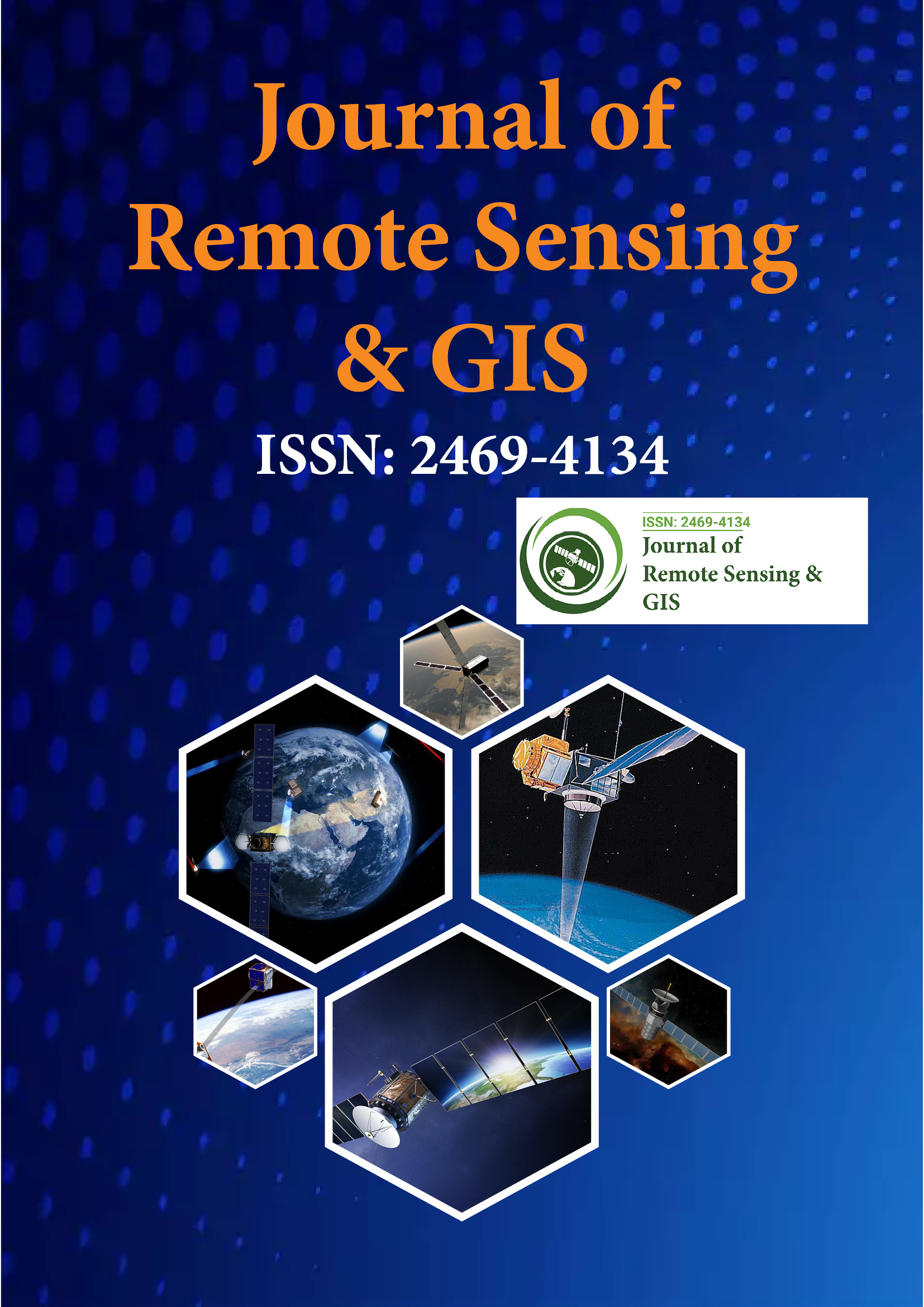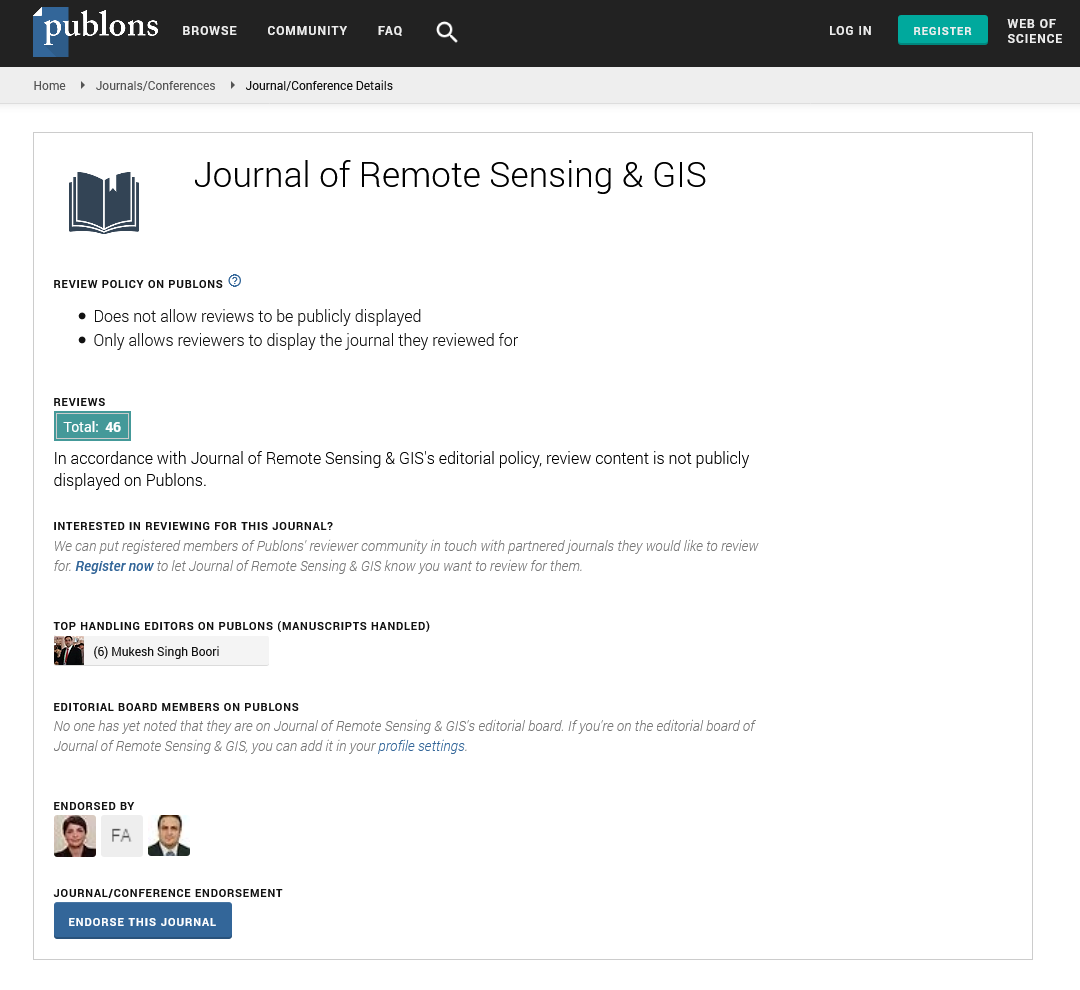Indexed In
- Open J Gate
- RefSeek
- Hamdard University
- EBSCO A-Z
- OCLC- WorldCat
- Publons
- International Scientific Indexing
- Euro Pub
- Google Scholar
Useful Links
Share This Page
Journal Flyer

Open Access Journals
- Agri and Aquaculture
- Biochemistry
- Bioinformatics & Systems Biology
- Business & Management
- Chemistry
- Clinical Sciences
- Engineering
- Food & Nutrition
- General Science
- Genetics & Molecular Biology
- Immunology & Microbiology
- Medical Sciences
- Neuroscience & Psychology
- Nursing & Health Care
- Pharmaceutical Sciences
Environmental planning and management of urban lake using fuzzy logics and geospatial technology- case study Bhopal, MP, India
3rd World Congress on GIS and Remote Sensing
September 20-21, 2017 Charlotte, USA
Aruna Saxena
Maulana Azad National Institute of Technology, India
Posters & Accepted Abstracts: J Remote Sensing & GIS
Abstract:
India is home to a wide range of water impoundments located in a diversity of climates, stretching from mountain conditions near the Himalayas in the north, to tropical conditions in the south. The impoundments include natural lakes, wetlands and coastal lagoons, as well as constructed reservoirs and tanks. This paper provides an overview of the urban lake management in Bhopal, India, focusing on use of geospatial and fuzzy logic techniques. Bhopal upper lake is exhibiting varying degrees of environmental degradation caused by encroachments, eutrophication (from domestic and industrial effluents) and siltation. The high population density ensures that this water body is under severe and direct pressure from anthropogenic activities in their catchments. Actions to control and prevent these problems are addressed. In this study, a noble concept of a fuzzy logic for lake water quality analysis is proposed. The aim of this evaluation on upper lake water quality is not only for decision support system (DSS) for environmental planning & management but also to facilitates urban planner, environmental experts and the community towards the conservation of water bodies.

